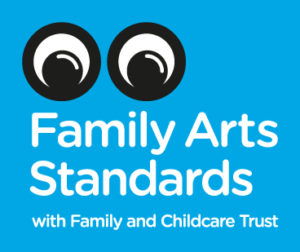The first issue of Borrowed Faces is a photo-novel on publishing culture by artist collective Fehras Publishing Practices. New and exciting stories transporting you to the age of the Cold War in the Eastern Mediterranean and North Africa and the hidden practices of publishing cultural there. You’ll be in the company of three women Afaf Samra, Hala Haddad and Huda Al Wadi whose respective fates brought them together in Beirut. The heroines take you on journeys filled with labor and love, joy and disappointment, revealing the entanglements of politics and culture through the prisms of power, money, creativity and friendship.
Programme for the exhibition Constellations of Multiple Wishes
The programme accompanying the exhibition Constellations of Multiple Wishes features artists, activists, and thinkers whose work and research considers modes of solidarity and organising. Reviewing and proposing new constellations and complicating notions of time, whilst also engaging with peripheral archives and stories connected to the Non-Aligned Movement (NAM). Carrying the spirit of our overall framework of fostering durational solidarities, the programme proposes a further evaluation of the exhibitions’ idea of potential history by looking at faded ideas of the past and interrogating their relevance for the present. Practices of solidarity are foregrounded, and exercises of imagining, and re-worlding are discussed and tested in gatherings online and in person.
The programme for Constellations of Multiple Wishes opens with a workshop led by KURS (Miloš Miletic and Mirjana Radovanovic) in which participants collectively create a banner for solidarity, inspired by discussions around Suheir Hammad’s poem Talisman. The banner will be installed at the balcony of The Mosaic Rooms for the duration of the exhibition. To continue the sharing of practices, including those inspired by poetry, exhibiting artist Basim Magdy will be in conversation about his multiple inspirations with writer Lucija Šutej and curator Angelina Radakovic, over cake. Open School East alumni James Jordan Johnson responds to the exhibition with a performance, further expanding on his practice of corporally investigating layers of memory. Self-organised groups continue to be welcome to take over our space with selected and related readings, this will include the Old Mountain Assembly with a new iteration on a Proposal for a Vocabulary of Multitudes.
The framework of the programme is held together by conversations bringing together thinkers who look at cultural solidarities and networks in the context of NAM and beyond, both past and present. Amin Alsaden, Yazid Anani, Naeem Mohaiemen, and Eszter Szakács will speak about their research and writing on solidarities in local, regional and transnational contexts in a panel moderated by Paula Barreiro López. Curators Daniela Berger, Bojana Piskur, Grace Samboh and Rasha Salti will talk about exhibition making, organising and new constellations of collaboration. In a workshop co-presented with Syrian Arts and Culture Festival, researcher Omar Ferwati from Forensic Architecture will introduce methods that can enable citizen-led forensic investigations.
A pillar of the programme questions personal and other archives of the early NAM period bringing them in dialogue with each other and with the multiplicity of voices in the programme. Marwa Arsanios returns to The Mosaic Rooms with a reading group. Mila Turajlic gives a live documentary performance of archival materials from the Non-Aligned Newsreels powered by Filmske Novosti project, filmed by Stevan Labudovic, who documented these summits as well as the Algerian independence movement. In a performative, collective reading of imagined dialogues, artist Sandra Muteteri Heremans will share her research for a film in progress on the experiences of African students in the USSR during the Cold War. Lina Dzuverovic and the working group of the Yugoslav Non-Aligned Movement Solidarity Archive, the Documents of Olja Dzuverovic, will discuss the next steps for the working documents of her aunt, the political worker Olja Dzuverovic, documenting Yugoslav political relations with Zimbabwe, Namibia, South Africa, and Angola during the period of decolonisation. In a broadcast performance and listening session artist and curator Yasmina Reggad, in conversation with artist Urok Shirhan, will closely review the archive of the liberation radios in 1960s and 70s Algeria and explore its utopias.
The Future Threads strand, dedicated to (co)creating sustainable ecologies with a focus on climate justice informed by urgent non-Western related questions, is devised in collaboration with collectives and partnerships. We re-invite Qanat Collective for a reading and walk alongside the river Thames contemplating the conservation of gifted and lost objects through time, mud and tides. Land resilience and the urgency of centring reparative approaches is discussed with artists Marwa Arsanios and Youngsook Choi, and curator Khanyisile Mbongwa in an offsite event co-presented with Nottingham Contemporary and Primary. In an ongoing broadcast partnership with Radio Al Hara, we host a conversation on practices of working with land with the collective MADEYOULOOK, moderated by Marwa Arsanios.
Sign up to our newsletter for all updates and check our overall 2023 programme here
